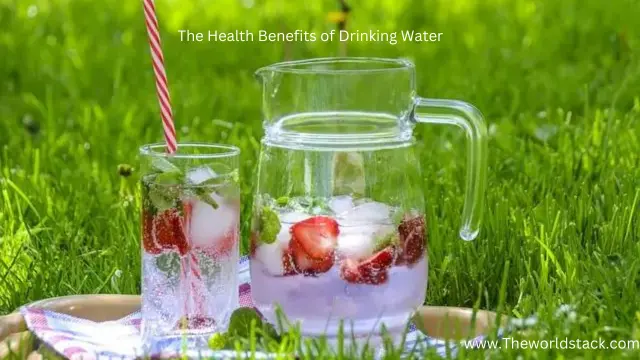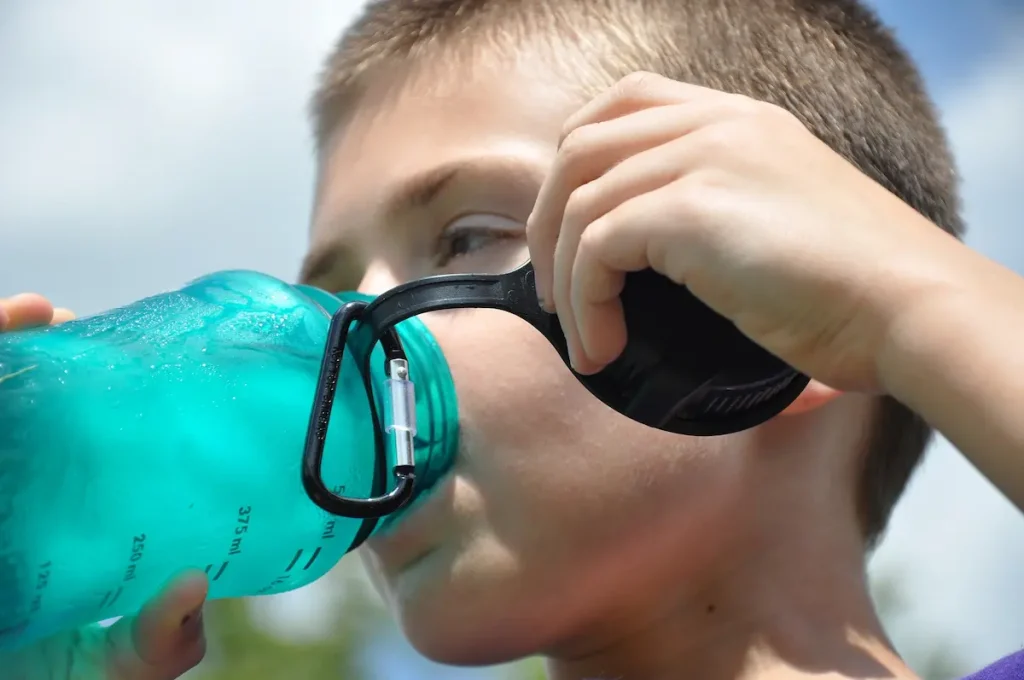Water is often referred to as the elixir of life, playing a crucial role in our overall health and well-being. The common advice we’ve all heard is to drink eight glasses of water per day, but is this rule universally applicable for optimal hydration? Furthermore, are there alternative ways besides water to satisfy our body’s thirst? In this article, we will dive into the topic of hydration, addressing these important questions and uncovering the numerous health benefits associated with maintaining proper hydration levels.
How Much Water Should I Drink?
Detecting the appropriate amount of water for an individual is a more nuanced matter than simply following the widely known “8×8” rule (eight 8-ounce glasses of water daily). The ideal quantity differs depending on factors such as age, gender, activity level, climate, and overall health.
As a general guideline, strive for between half an ounce and an ounce of water for every pound you weigh. Strive for 75 to 150 ounces of water each day if you weigh 150 pounds. Keep in mind that thirst is a reliable indicator of your body’s demand for water; therefore, pay attention to it and drink when thirsty.
The Health Benefits of Water

Water plays a crucial role in maintaining our body functions, including digestion, circulation, nutrient absorption, and temperature regulation.
Maintaining Body Functions: Water is necessary for digestion, circulation, nutritional absorption, and control of temperature in the body, among other bodily processes.
Healthy Skin: Proper hydration can contribute to healthy, glowing skin, reducing the risk of dryness and skin conditions.
Weight Management:One simple strategy for managing weight is to drink water before meals. This can help control appetite and support efforts towards weight loss..
Detoxification: Water serves as vital for the body’s method for eliminating toxic substances and waste through urine.
Joint Health:Taking care of your joints is important for maintaining joint health. One way to do this is by staying hydrated, as it helps keep your joints lubricated and may reduce the risk of experiencing
Mental Clarity: It’s important to stay hydrated to keep our minds sharp because dehydration can negatively impact cognitive functions.
Is Water the Only Option for Staying Hydrated?

Contrary to what many believe, water isn’t the only way to stay hydrated. There are plenty of foods and beverages that help you meet your daily fluid needs. Fruits and vegetables, for instance, have a high water content that contributes to hydration. Additionally, milk, herbal teas, and even coffee can also count toward your hydration goals. However, it’s important to be cautious about added sugars and the caffeine content in certain drinks.
Additionally, sports drinks can be helpful during rigorous physical activity as they replenish electrolytes that are lost through sweat. An alternative option for hydration is coconut water, which naturally contains electrolytes.
What about the 8-glass-a-day recommendation?
The “8×8” rule, which states that one should consume eight glasses of water every day, has been a long-standing guidance for maintaining your body hydrated. While it provides a simple and easy-to-remember objective, it is critical to note that individual moisture restoration demands might vary greatly. Age, gender, activity level, climate, and overall health are all factors that influence how much water a person should eat daily. Although the “8×8” rule can be an effective place to start, it shouldn’t be construed as a one-size-fits-all prescription. The best way to stay sustaining moisture is to listen to your body and identify thirst cues.
In addition, staying adequately hydrated is not limited to drinking water alone. Consuming fruits, vegetables, and other beverages that have a high water content also play a role in maintaining overall hydration and supporting the proper functioning of your body for optimal health.
Conclusion
The correct response to the question “How much water should I drink?” is a complex one and varies based on a variety of individual characteristics. While the 8×8 rule provides an important guideline, it is also extremely important to pay attention to your body’s thirst signs.
Water delivers many advantages for your health, but it is not the only method you can use to stay liquid intake. A well-rounded meal plan rich in water-rich foods and liquids can also majorly contribute to daily fluid consumption. Staying precisely hydrated is critical for general health and well-being, so make it a goal to find the right balance that works for you, and learn about the vast world of hydration that stretches beyond H2O.
“In addition to understanding ‘How Much Water Should I Drink?’ for overall health, it’s equally important to pay attention to the quality of your daily nutrition.” If you’re curious about the fascinating world of nutrition, you might find our essay ‘Sinful Nutrition: Where Every Veggie Has a Dark Side’ both enlightening and insightful.
FAQs:
Q1. Can I include other beverages and snacks in my daily water consumption?
Yes, a wide variety of foods and beverages contribute to your regular fluid consumption. Fruits, vegetables, milk, herbal teas, and even coffee can aid in hydration. Some beverages contain additional sugars and caffeine.
Q2. Are there any circumstances in which I could require more water than the suggested amount?
Yes, extreme heat, strenuous physical exercise, illness, or pregnancy can all raise your water consumption. Take note of your body’s cues and modify your intake

